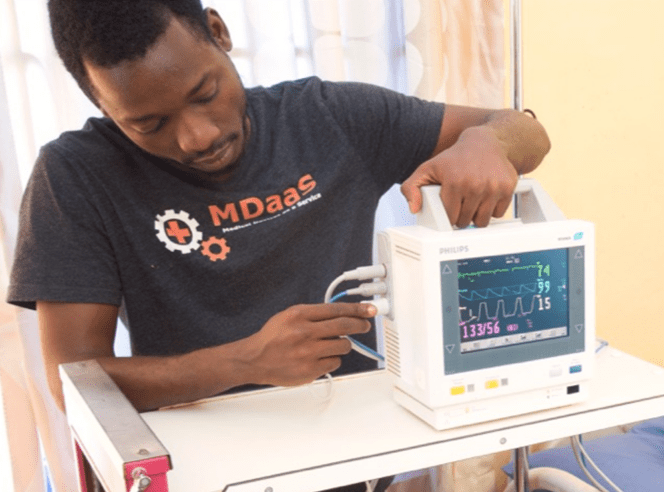Many people in Africa lack adequate access to healthcare. How are local innovators changing this? Digital health and developments in disease detection have long been touted as solutions for improving care. But to maximise their effectiveness in Africa, they need to be tailored to local conditions.
For example, a 2021 review of the use of telemedicine in Sub-Saharan Africa listed a range of barriers to adoption that are specific to different geographic groupings within the broader region.
Thankfully, early-stage funding for African healthtech has been growing steadily, and home-grown healthtech startups are improving health across the continent.
Digital health
In Uganda, Stre@mline is tapping the power of local communities by letting existing groups – such as women’s groups, churches, and schools – save and pay insurance premiums together through mobile money. And beyond this, the company offers a platform for electronic medical records and an artificial intelligence (AI) tool that identifies local health trends.
Meanwhile, Cameroon’s Waspito is connecting patients to healthcare professionals and diagnostic laboratories. Patients search for nearby doctors, setting up face-to-face consultations delivered through their smartphone. Lab technicians can then be sent to their door to perform basic tests. This service is supported by a social network, where doctors review FAQs and provide content on important health topics.
While digital health is growing, there are also benefits to in-person care. For this reason, Kenya’s TIBU Health is bridging the gap between physical and digital healthcare. The startup offers at-home and virtual care and has its own modern clinics. Its services include medical consultations, lab tests, COVID-19 testing, and vaccinations.
Beyond routine services, South Africa’s Quro Medical is creating ‘hospitals-at-home’ using telematics and remote patient monitoring. Patients are supported through 24/7 vital signs checking, virtual ‘visits’ with health professionals, home oxygen, and an on-call ambulance service. Daily in-person visits, blood tests, and wound dressings can also be added for an additional cost.
Finally, in Rwanda, Insightiv has developed a web-based platform that allows specialists to remotely view medical imagery, with AI helping them to analyse patient data more efficiently and accurately.
Prevention and early detection
Beyond new models of care provision, prevention and early detection of disease are vital for improving health outcomes.
In Sub-Saharan Africa, respiratory illnesses are a significant risk. And in Uganda, MamaOpe has developed acoustic devices and algorithms that identify signs of respiratory disease. Healthcare professionals place the company’s device on a patient and enter their age. Recorded sounds are then analysed against disease indicators, such as respiratory rate, abnormal lung sounds, and heart rate.
Beyond new diagnostic technologies, innovators are turning to machine learning for healthcare insights. In South Africa, Palindrome Data is deploying predictive analytics and alternative data to model health risks for those without access to traditional healthcare. In a 2022 study that the company participated in, machine learning was applied to anonymised, patient-level data on HIV programmes in South Africa. This identified patients at risk of disengaging from care and not being virally suppressed.
Vaccinations are a final focus area for improving health across Africa, and Zimbabwe’s VaxiGlobal is deploying facial recognition to verify vaccine rollouts without the need for formal identification. Patients enrol using this technology, and once a vaccine is administered, health workers create a digital certificate that is biometrically linked to the patient. This is uploaded securely to the cloud, and verifiers can then scan a patient’s face to pull their vaccination records. The technology is specifically designed for areas with low mobile adoption rates, inconsistent medical records, and patchy internet.
While there is still work to do to improve access to healthcare in Africa, these local innovators are all developing important solutions that meet the practical needs of patients.
SOURCE: www.africa.com/



